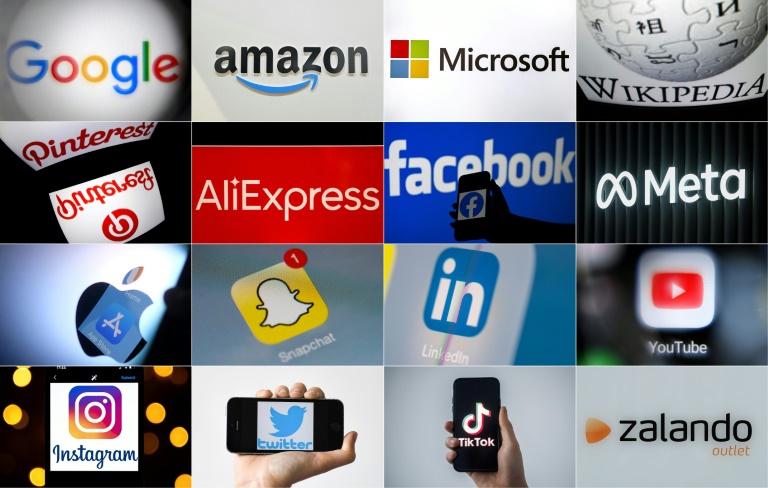Science
China Leads in Global Social Media Bans, Impacting Billions

The landscape of social media is significantly shaped by government regulations, with China emerging as the country imposing the highest number of bans on social media platforms worldwide. A recent study by the influencer platform Heepsy reveals that major applications such as Facebook, WhatsApp, and YouTube are among those most frequently restricted, impacting billions of users globally.
According to Heepsy’s findings, Facebook holds the title of the most banned major app, facing restrictions in seven countries, including China, North Korea, and Russia. The platform boasts over 3 billion monthly active users and generates approximately $134.9 billion in annual revenue. Despite its vast reach, it remains inaccessible in nations where government control over information is stringent.
Following closely, WhatsApp is prohibited in five countries, including China and North Korea. With a user base of around 3.03 billion, the messaging app is the second most restricted platform globally, reinforcing the pattern that both of the top two restricted apps are owned by Meta.
Heepsy’s research highlights the broader issue of internet censorship, which affects more than 3.8 billion people worldwide. Almost half of the global population resides in countries where access to popular social media platforms is limited.
Top Banned Social Media Platforms
In the study, Heepsy analyzed various indicators, including monthly active users, market share, annual revenue, and online search interest, to identify the most popular apps and the extent of governmental restrictions on them. The results revealed the following top ten most banned apps:
1. **Facebook**: 3.05B users, $134.9B revenue, banned in China, Iran, North Korea, Myanmar, Russia, Turkmenistan, and Uganda.
2. **WhatsApp**: 3.03B users, $1.24B revenue, banned in China, North Korea, Syria, Qatar, and the UAE.
3. **YouTube**: 2.7B users, $31.5B revenue, banned in North Korea; partial bans in Germany, China, Thailand, and Malaysia.
4. **Instagram**: 2B users, $50.58B revenue, banned in China, Vietnam, North Korea, and Turkey.
5. **Google**: 1.5B users, $305.6B revenue, banned in China.
6. **WeChat**: 1.3B users, $16.4B revenue, banned in India; partial restrictions in Canada, the UK, and New Zealand (government devices).
7. **TikTok**: 1B users, $120B revenue, banned in India; partial bans in Nepal, New Zealand, Taiwan, and Indonesia.
8. **Twitter (X)**: 335.7M users, $3.4B revenue, banned in China, Iran, Myanmar, North Korea, Russia, and Turkmenistan.
9. **Baidu**: 667M users, $14.57B revenue, banned in India.
10. **Spotify**: 602M users, $13.2B revenue, banned in China, Ethiopia, Libya, Somalia, Sudan, Iran, Iraq, Myanmar, Cuba, and Venezuela.
YouTube ranks third among the most banned apps, attracting significant online interest with approximately 10 million searches monthly. Despite its popularity, it faces complete blockage in North Korea and partial restrictions in several other countries.
Instagram, with 2 billion users, ranks fourth. It generates substantial revenue but faces bans in China and three other countries.
Google, the world’s leading search engine, is fifth on the list. With 1.5 billion monthly users, it remains prohibited in China, where the local search engine Baidu dominates.
The report highlights that WeChat continues to operate under restrictions, primarily in India, while TikTok faces total bans in India and partial restrictions in several other regions. Twitter has been banned in multiple countries, including North Korea and China.
At the bottom of the list, Spotify emerges as the most restricted music streaming platform, facing bans in numerous countries while still reporting impressive annual revenue of $13.2 billion.
The implications of such widespread censorship are profound, affecting not only individuals but also businesses and the global flow of information. As more than half of the world’s population navigates through environments with restricted access, understanding these dynamics becomes increasingly essential.
-

 Education3 months ago
Education3 months agoBrandon University’s Failed $5 Million Project Sparks Oversight Review
-

 Science4 months ago
Science4 months agoMicrosoft Confirms U.S. Law Overrules Canadian Data Sovereignty
-

 Lifestyle3 months ago
Lifestyle3 months agoWinnipeg Celebrates Culinary Creativity During Le Burger Week 2025
-

 Health4 months ago
Health4 months agoMontreal’s Groupe Marcelle Leads Canadian Cosmetic Industry Growth
-

 Science4 months ago
Science4 months agoTech Innovator Amandipp Singh Transforms Hiring for Disabled
-

 Technology4 months ago
Technology4 months agoDragon Ball: Sparking! Zero Launching on Switch and Switch 2 This November
-

 Education4 months ago
Education4 months agoRed River College Launches New Programs to Address Industry Needs
-

 Technology4 months ago
Technology4 months agoGoogle Pixel 10 Pro Fold Specs Unveiled Ahead of Launch
-

 Business3 months ago
Business3 months agoRocket Lab Reports Strong Q2 2025 Revenue Growth and Future Plans
-

 Technology2 months ago
Technology2 months agoDiscord Faces Serious Security Breach Affecting Millions
-

 Education4 months ago
Education4 months agoAlberta Teachers’ Strike: Potential Impacts on Students and Families
-

 Education3 months ago
Education3 months agoNew SĆIȺNEW̱ SṮEȽIṮḴEȽ Elementary Opens in Langford for 2025/2026 Year
-

 Science4 months ago
Science4 months agoChina’s Wukong Spacesuit Sets New Standard for AI in Space
-

 Business4 months ago
Business4 months agoBNA Brewing to Open New Bowling Alley in Downtown Penticton
-

 Business4 months ago
Business4 months agoNew Estimates Reveal ChatGPT-5 Energy Use Could Soar
-

 Technology4 months ago
Technology4 months agoWorld of Warcraft Players Buzz Over 19-Quest Bee Challenge
-

 Business4 months ago
Business4 months agoDawson City Residents Rally Around Buy Canadian Movement
-

 Technology2 months ago
Technology2 months agoHuawei MatePad 12X Redefines Tablet Experience for Professionals
-

 Technology4 months ago
Technology4 months agoFuture Entertainment Launches DDoD with Gameplay Trailer Showcase
-

 Top Stories3 months ago
Top Stories3 months agoBlue Jays Shift José Berríos to Bullpen Ahead of Playoffs
-

 Technology4 months ago
Technology4 months agoGlobal Launch of Ragnarok M: Classic Set for September 3, 2025
-

 Technology4 months ago
Technology4 months agoInnovative 140W GaN Travel Adapter Combines Power and Convenience
-

 Science4 months ago
Science4 months agoXi Labs Innovates with New AI Operating System Set for 2025 Launch
-

 Technology4 months ago
Technology4 months agoNew IDR01 Smart Ring Offers Advanced Sports Tracking for $169










